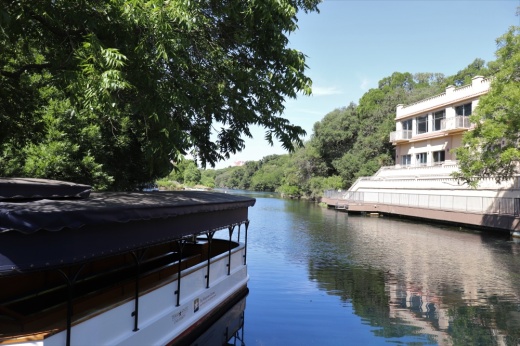"Growing up here in Central Texas myself, I remember summers in which the only temperatures were hot and hotter," Doggett said. "The only problem now is they're just hotter and hotter."
The funding was requested because of the urgent need to address the climate crisis, Doggett said, and will further the environmental work done at the Meadows Center, which includes water conservation and climate change research.
While the heat can be unpleasant, it poses a much bigger threat to the environment as high temperatures result in drier soils and less water running into streams, rivers, lakes and, ultimately, the aquifers, Chief Water Policy Officer Robert Mace said.
"This funding will support an ambitious project here at the Meadows Center to provide Texans from policy makers at the Capitol to regional water authorities to communities to citizens the information they need to make informed decisions about their water resiliency under a changing climate," Mace said.
The work to be done will focus on three primary objectives: to use Texas and water specific climate projections to determine how much climate change affects existing water resources; to identify options for state and regional water authorities and communities to consider when addressing climate change and water resource resiliency; and to educate policy makers and the public on what data is discovered.
This is an applied research project, Mace said, that will focus on research that is actionable and can be used to improve the state.
With the funding secured, the work will begin with an analysis of policy issues as climate change is a difficult topic to discuss in Texas, Mace said.
"We're in a state where there's still a lot of climate denial, so there may not be as much discussion of the term 'climate crisis,' which I think we're really in at a state level," Doggett said. "When Odessa goes without water on the edge of the Permian Basin, when people are talking about water rationing already, when we see the effect of heat already this year on our water supply ... there are practical people out there at the city and county level who want to do something about it."
The project is expected to take about five years and will ultimately create a tool to help inform action regarding water.
"We still have much work to do, but it's critical for us to do this work to ensure the resiliency of Texas," Mace said.





